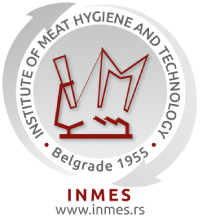Bacterial hazards in fish meat: The aetiologic agents of foodborne diseases
Abstract
Nowadays, consumers, fish industry professionals and scientists are increasingly directing their attention towards safety requirements associated with the consumption of fish due to the presence of bacterial hazards. There is no doubt that good knowledge and management of bacterial hazards associated with the consumption of fish are of great economic and medical importance. This study describes the bacterial pathogens that most often cause fishborne outbreaks of disease (Vibrio, Escherichia coli, Staphylococcus aureus, Salmonella, Aeromonas, Clostridium, Campylobacter, Listeria), as well as some individual disease outbreaks. In addition, the measures that can be implemented to reduce the risk of bacterial hazards related to consumption of fish are reviewed. The most important risk factor regarding bacterial zoonoses where fish was a vector was consumption of raw or undercooked processed fish, including cold smoked fish, but recontamination is also an important risk factor.





